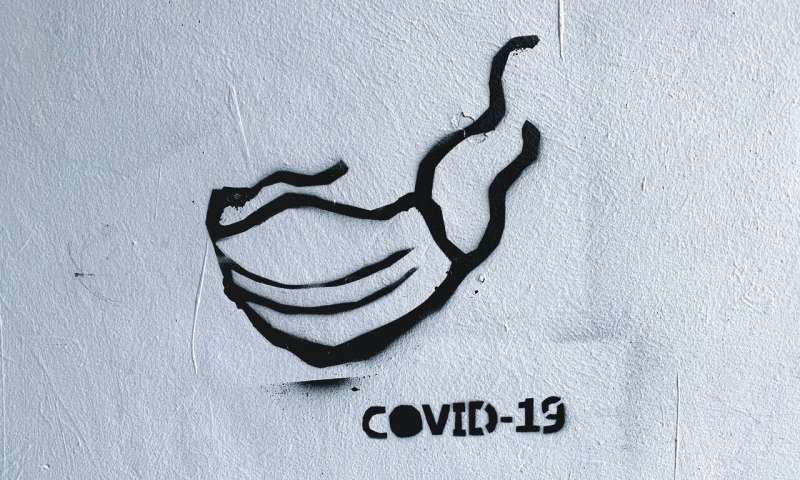Steroid ‘breakthrough’ raises virus hopes, despite China outbreak

The World Health Organization on Tuesday hailed a “breakthrough” steroid treatment for the coronavirus, boosting hopes that pandemic deaths can be reduced, but a growing new cluster in China sparked fears of a second wave of infections.
Surging death tolls in the Americas and South Asia, plus a new cluster of cases in Beijing, have raised fresh doubts about how soon the world can bring COVID-19 under control.
In the latest sign of the economic toll, US Federal Reserve Chair Jerome Powell warned that the world’s biggest economy is unlikely to recover as long as there is “significant uncertainty” about the pandemic.
But news of the first proven effective treatment for COVID-19, a widely available steroid, gave cause for fresh hope.
“This is great news and I congratulate the Government of the UK, the University of Oxford, and the many hospitals and patients in the UK who have contributed to this lifesaving scientific breakthrough,” said the head of the World Health Organization, Tedros Adhanom Ghebreyesus.
Researchers led by a team from the University of Oxford administered the drug, dexamethasone, to more than 2,000 severely ill COVID-19 patients.
Among those who could only breathe with the help of a ventilator, it reduced deaths by 35 percent.
“Dexamethasone is inexpensive, on the shelf, and can be used immediately to save lives worldwide,” said Peter Horby, professor of Emerging Infectious Diseases in the Nuffield Department of Medicine at Oxford.
Britain’s Health Secretary Matt Hancock said patients would start to receive the drug immediately.
China cluster, India spike
But there were fresh reminders of the lingering threat from Asia.
China, which had largely brought its outbreak under control, reported another 31 new infections in Beijing, bringing the total from a fresh cluster linked to a wholesale food market to 137 in six days.
The capital’s airports cancelled at least 1,255 flights Wednesday, nearly 70 percent of all services, state media reported.
The new outbreak has led authorities to implement mass testing, put neighbourhoods on lockdown, close schools and urge residents to not to leave the city.
And in India, the world’s second-most populous country, saw its COVID-19 death toll shoot up by more than 2,000 to nearly 12,000 fatalities.
More than 8.1 million people have now been infected by the virus since it emerged in China late last year, with nearly 440,000 deaths so far.
Brazil, which has the second-highest caseload and death toll in the world, reported its biggest daily jump in new cases since the start of the pandemic: 34,918.
Peru’s death toll, meanwhile, surged past 7,000.
And the United States, the hardest-hit country, passed a grim milestone: with 116,854 deaths, the country has now seen more people die from the pandemic than in World War I.
Fed chief Powell once again pledged the bank will use all its policy tools to help ensure recovery from the outbreak, which he said has inflicted the worst pain on low-income and minority groups.
But the economic contraction in the April-June quarter “is likely to be the most severe on record,” he said.
Beyond the Americas, Iran and Saudi Arabia have all reported sharp increases in deaths and infections in recent days.
Fans, please stay away
European nations including Belgium, France, Germany and Greece have begun lifting border restrictions, hoping to save the summer tourism season.
But life is still far from normal.
In Britain, the Premier League football season resumes on Wednesday, but in empty stadiums.
The league urged supporters not to congregate outside the grounds, risking new clusters of infections.
Source: Read Full Article


